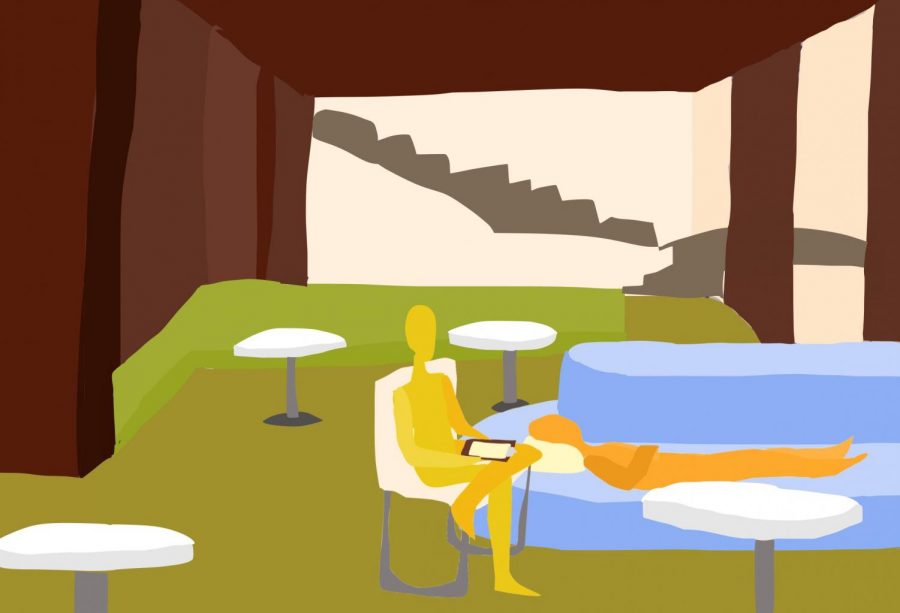High demand pushes counseling center to hold sessions in Reid
November 21, 2019
As daylight savings time rolls around and seasonal depression settles over campus, the Welty Counseling Center enters its busiest time of year. In order to handle the excess of students clamoring to vent for an hour about their raging feelings of emptiness and unfulfilling hook ups, the Counseling Center has moved meetings into the Reid Campus Center.
“Polls showed that 85 percent of people are already emotionally distraught upon entering Reid and laying their eyes upon those fugly mint green booths, so we’re really grateful that we can channel this energy into a productive session,” said Mary Johnston, rep for the Counseling Center.
However, with students and random adults bustling around to pick up their mail and grab a Yerba Mate at all hours of the day, counselors caution that there’s a strong likelihood of a random passerby overhearing your innermost private thoughts.
Reid frequenter and psychology major Claire Atkins weighs in. “I already listen to people’s conversations in Reid all the time, so I’ve really enjoyed gaining insight into the stream of consciousness that therapy allows for. Also, as a psychology major and creative writing minor, it has been really beneficial to my academics to overhear psychoanalysis playing out,” said Atkins, who also contends that eavesdropping on people’s traumas has helped her become a more mindful person, as well as a very reliable gossip source.
More friction has risen with the counseling center’s institution of a lottery, which decides where in Reid appointments will be held.
“The corner of the basement with the fireplace is our most highly preferred spot, but unfortunately we can’t meet everyone’s needs. If you get assigned a session at that one high table with the uncomfortable chairs in the cafe portion, I’m afraid you’ll just have to grin and bear it.”
Despite the possibility of light censorship and sitting on a glorified bar stool, hosting meetings in a public space has allowed counselors to approach stragglers in Reid who look like they need help.
“If we see anyone eating those chicken salad croissant sandwiches or picking up a black coffee after 5 p.m., that is a textbook example of a cry for help.”
While this transition was uncomfortable for many, it has normalized therapy, as well as made counseling more accessible to students drifting in who have a difficult time reaching out.






